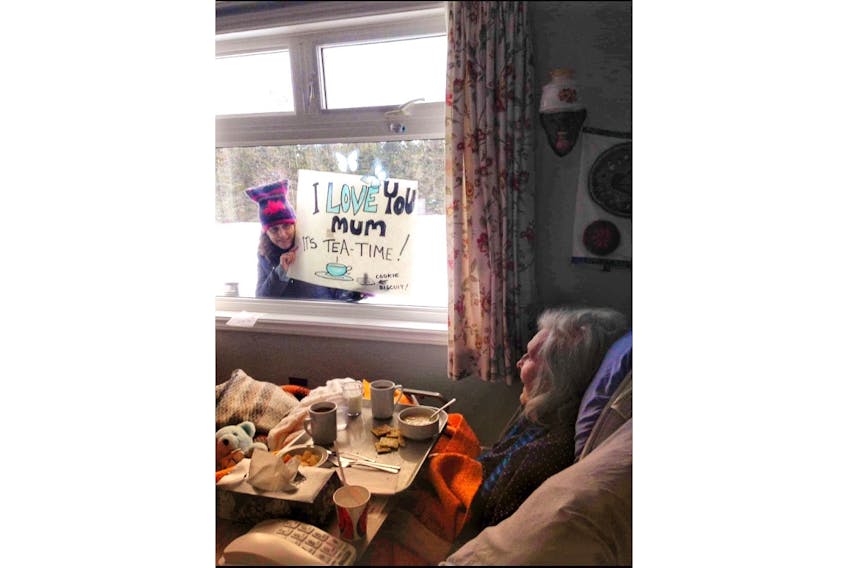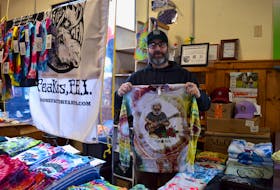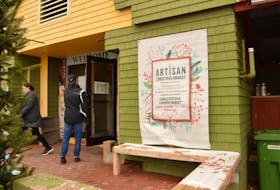CHARLOTTETOWN, P.E.I. — When P.E.I. nursing homes and long-term community care facilities closed their doors to visitors on March 15 due to the coronavirus (COVID-19 strain), Trilby Jeeves found herself in a quandary.
Her mother, a resident at Beach Grove Home in Charlottetown, had come to depend on her daily visits.
“I didn’t know what to do, so I went into freeze mode,” says Jeeves, who is visiting from British Columbia where she works in the film industry.
Once she got over the shock, she started thinking of ways to stay in touch with her mother without putting anyone’s health at risk.
“Luckily, I come from a creative, imaginative family. We grew up being told, ‘don’t take no’ for an answer. So, I started thinking, ‘what’s another way in?’”
In her quiet moments, she visualized seeing her mother through a glass.
“It just came to me ... One way I could communicate her with her was through her window.”
But before she could visit, she had to get some tools together.
Her mother has dementia, with a tendency to repeat questions. So instead of repeating why Jeeves couldn’t go inside each time, she printed her reason on a Bristol board.
“So, when she asks what I’m doing I just hold it up so she can read it again.”
Jeeves also created a sign encouraging her mother to enjoy teatime.
With her tools in tow and a chair to sit on, she headed to Beach Grove Home.
“The first day that I went, it was cold, so I wrapped up super warm and I took my tea.
“I’m not afraid of being outside. Working in the film industry in Vancouver we’re outside a lot. And, at times it gets pretty rough, so I’m thinking, ‘we only have to shoot one scene outside,” she laughs.
At first, her mum was confused but then, after talking to her on the telephone and seeing the posters, she began to relax.
“She gave me a victory sign.”
Now Jeeves visits on alternate days and sends letters on the day she’s not at the window.
“It helps me feel better, knowing that I’m doing something.”
But it’s not been easy.
“I want to be upbeat and there for Mum, but then I get back in the car and (feel sad).”
Jeeves hopes her story will inspire others who have loved ones in long-term care to seek out new ways to connect with them.
“Maybe we can start a windows group.”
Ways to help seniors
- If you over-purchased basics like toilet paper and canned goods at the beginning of the crisis, donate some of it to a senior centre or food bank so those who are vulnerable can get some. Or give some to a neighbour who can’t go out.
- Offer to text, phone or be an errand buddy.
- Take the canine pals for a walk for those who can’t.
- Use technology to be “together.” Isolation is going to create loneliness for some elderly people.
- Help someone in isolation find interesting things online.
- Buy the person an audiobook or podcast subscription. Some may need help navigating them at first.
- Call regularly to check in, but also make time just to chat.









